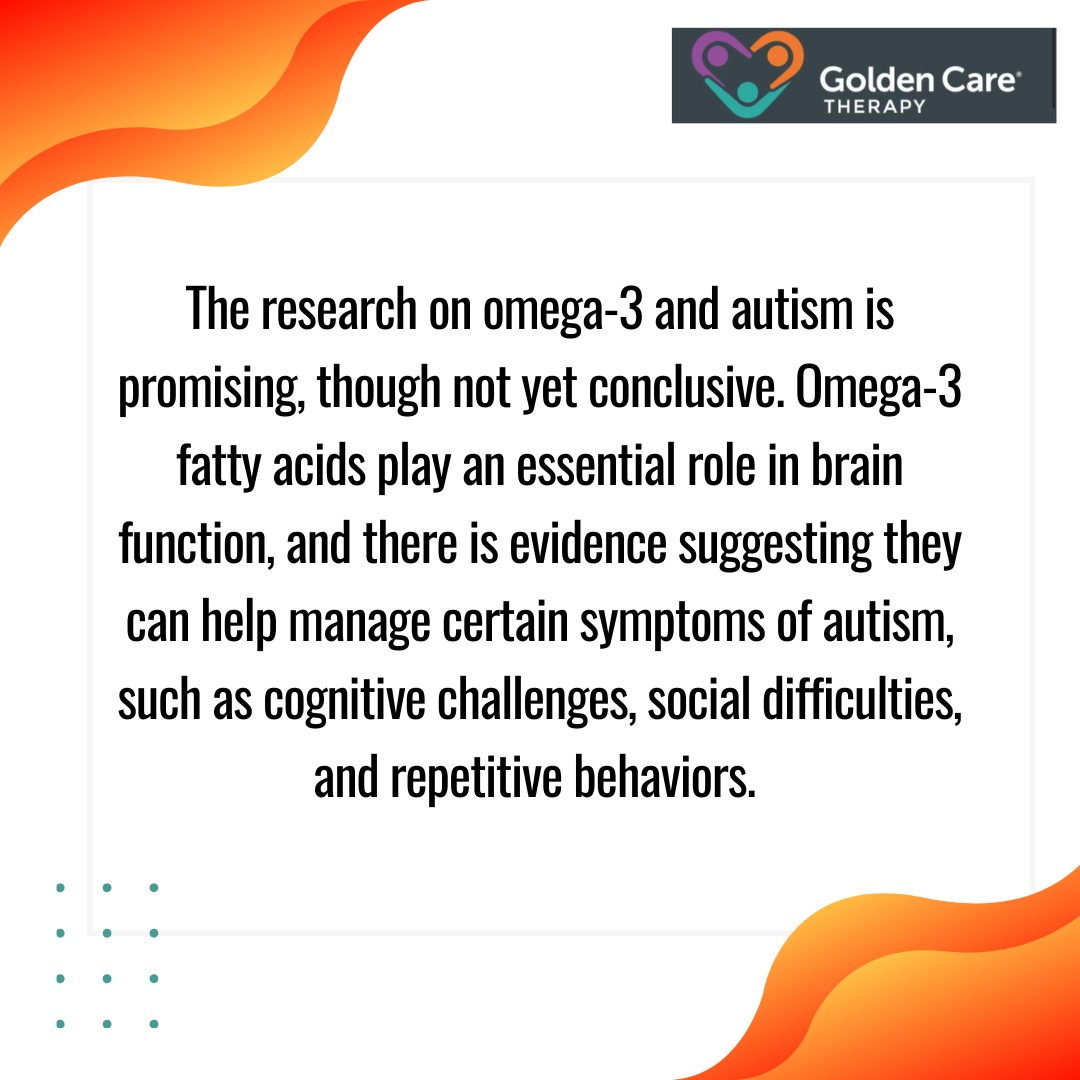Omega-3 fatty acids are often celebrated for their role in promoting heart health, but their benefits extend far beyond that. For individuals with autism, these powerful nutrients may hold the key to unlocking better focus, improved emotional regulation, and even stronger communication skills.
The connection between omega-3s and autism is both fascinating and hopeful, offering a natural way to support growth and well-being. So, how exactly do these essential fats make such an impact?
The Science Behind Omega-3 and Autism
Several studies have explored the role of omega-3 fatty acids in improving the symptoms of autism. Autism is linked to irregularities in brain function, particularly in areas controlling communication, behavior, and sensory processing. Additionally, omega-3s may help mitigate issues like overeating, which can be a concern for some individuals on the spectrum.
Omega-3s, especially EPA and DHA, are integral to the brain’s structure and functioning. Their anti-inflammatory properties and influence on neurotransmitter regulation make them of interest in managing autism.
Recent studies indicate that omega-3s may help alleviate some of the symptoms of autism, including social communication difficulties, repetitive behaviors, and sensory issues.
Some research has found that omega-3 supplementation can result in improvements in language development, social interaction, and emotional regulation in children with autism.

How Omega-3 Fatty Acids Can Benefit Individuals with Autism
Omega-3 fatty acids offer a range of potential benefits for individuals with autism, addressing various aspects of brain health and behavioral improvement. These essential fats have been the focus of numerous studies exploring their impact on autism, from cognitive development to social interaction.
Below are some of the key ways omega-3s can support individuals with autism:
Enhancing Brain Function and Cognitive Development
One of the primary benefits of omega-3 fatty acids is their support for brain development and cognitive function. For individuals with autism, who may experience developmental delays or cognitive challenges, omega-3 supplementation can provide a nutritional boost that may promote better brain function and development.
Reducing Inflammation and Oxidative Stress
Many studies suggest that individuals with autism have higher levels of oxidative stress and inflammation in the brain. Omega-3 fatty acids have been shown to reduce these factors, potentially easing some of the underlying causes of autism-related symptoms. By promoting healthier brain function, omega-3s may help manage the neurological irregularities often seen in autism.
Improving Communication and Social Interaction
Social communication difficulties are a hallmark of autism, and omega-3 fatty acids may have a role in improving these skills.
Some studies have shown that children with autism who received omega-3 supplementation demonstrated improved social engagement, increased verbal communication, and better social reciprocity. Omega-3s may enhance brain function in areas involved in social cognition, which could lead to improved interaction with peers and family members.
Alleviating Repetitive Behaviors
Repetitive behaviors, such as hand-flapping, rocking, or repetitive speech, are common in individuals with autism. Omega-3 fatty acids, particularly EPA, have been linked to reduced impulsivity and repetitive behaviors.
While more research is needed, omega-3s’ calming effects on the brain may help reduce some of these repetitive tendencies.
Potential Risks and Side Effects
While omega-3 fatty acids are generally considered safe, some individuals may experience mild side effects such as nausea, diarrhea, or a fishy aftertaste when taking omega-3 supplements.
High doses of omega-3s can also increase the risk of bleeding, so it’s essential to use these supplements cautiously, especially for individuals on blood-thinning medications.
As with any supplement, it’s crucial to consult with a healthcare provider before starting omega-3 therapy, particularly for children or individuals with specific health conditions.

However, more research is needed to determine the optimal dosage, long-term effects, and the most effective form of omega-3 for autism treatment.
For individuals with autism and their families, omega-3 supplementation could offer an additional tool in managing symptoms and improving quality of life. As always, consulting with a healthcare professional is essential before starting any new treatment regimen.
As long as it’s used correctly, Omega-3 could be a valuable addition to the toolbox of autism therapies. At Golden Care Therapy, we’re dedicated to providing high-quality ABA services in Indiana, New Jersey, New York, Georgia, and Florida.
Our compassionate team tailors every program to meet the unique needs of your child. Contact us today to learn more about how we can support your family and make a lasting difference in your child’s life!



